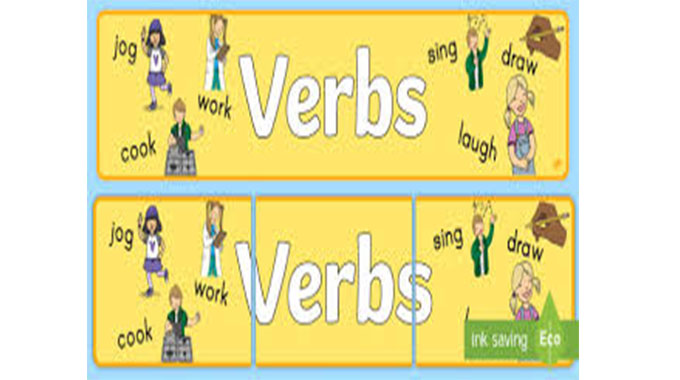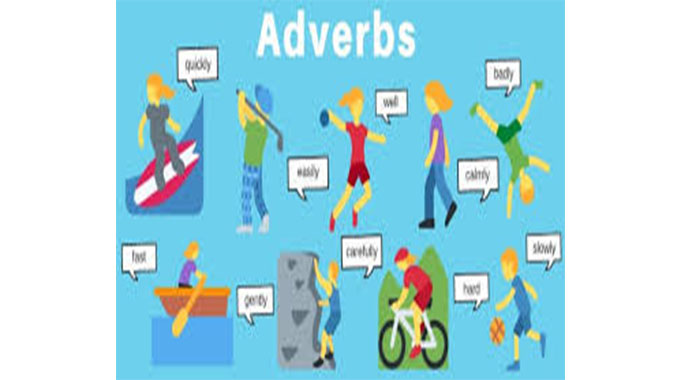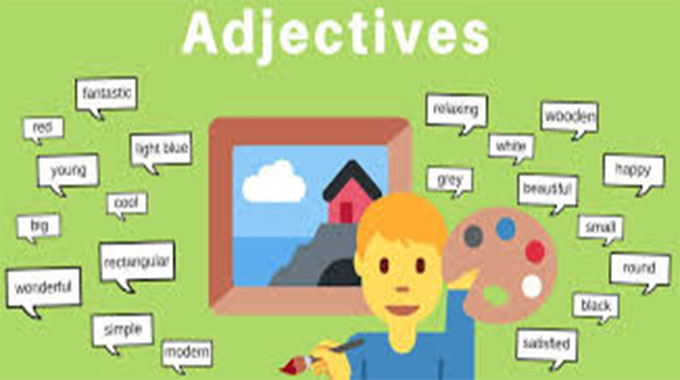
The Sunday News

Moving back and forth with parts of speech.
We have discussed these and many more before.
Adverbs modify verbs, adjectives and other adverbs as shown in the following examples: I walk slowly.

“Slowly” modifies the verb “walk”.
The shop is always clean.
“Always” modifies the adjective “clean”.
He writes very neatly.
“Very” modifies the adverb “neatly”.
Most common adverbs are formed by adding “ly” to the adjective. For example: quick – quickly, clear – clearly, careless – carelessly, immediate – immediately, courageous – courageously, sharp – sharply, keen – keenly and wise – wisely.
In adjectives that end in “-y” replace the “-y” with “-i”, then add “-ly”.
For example: easy – easily.
Happy – happily, noisy – noisily, heavy – heavily, day – daily.
In adjectives that end in “-ful” add “-ly”.
Examples: careful – carefully, beautiful – beautifully, sorrowful – sorrowfully, faithful – faithfully, and skilful – skilfully. In adjectives that end in “-le” drop the “-e” and add “-ly”.
For example: possible – possibly, reasonable – reasonably, probable – probably, simple – simply and comfortable – comfortably.
Exceptions: Some adverbs are complete without “-ly”.
For instance: well, always, never, ever, too, seldom, often, only, almost, soon, forwards, early, much, fast, hard, still, sideways, backwards, sooner, soonest, little, less, least, worse, worst, harder, hardest, faster, fastest, more, most, just, better, nest, and sometimes.
Placing adverbs correctly in sentences: (a) Be careful about placing the adverbs: always, almost, never, just, certainly and sometimes.

The dam is almost full/empty.
Place an adverb after an auxiliary verb is.
He always/never goes to town by bus.
Place adverb before a main verb.
Other examples: She just wants to play the whole day.
She was certainly not the best at Mathematics.
Victor almost won/lost the competition.
She always/sometimes/never visit us. I have never/just seen her.
Changing the position of an adverb in a sentence may alter the sense.
Be especially careful with the adverb “only”.
Only Job wrote the test. (Nobody else wrote).
Job only wrote the test. (He did nothing else).
Please note that some words ending in “-ly” are adjectives not adverbs: friendly, lovely, brotherly, neighbourly, lively, silly, deadly, chilly, homely, smelly, ugly, motherly, fatherly, sisterly, jolly, ungainly, surely, manly, and kindly.
Adjectives, the comparative and superlative.
Adjectives tell us more about nouns.
Another common definition of adjectives is that they describe a noun.
Simon is a tall/young/polite/fat boy.
The child is awake/asleep/happy/.
Most adjectives can be used next to the nouns.
(a) Attributively: For instance: clever learner, long journey.
(b) Predicatively (that is after verbs such as: look, appear, became, seem, be, and others).
For example: looking smart; appeared healthy, became poor, seems happy, be sick, proved difficult.
A few adjectives can be used only attributively: the former/latter owner.

My late father meaning he is dead, your elder, eldest brother, in the outer/inner lane.
Using suffixes to form adjectives: Some adjectives are formed by adding suffixes at the end of a verb, noun, or another adjective to form an adjective with a different meaning to the base word.
For example, let us form adjectives using the given suffixes under the following headings: Suffix, Base word, Function of the word in a sentence and conclude with the adjective formed: -able, base word could be move.
Function of this word – verb.
Adjective formed is movable.
We follow the above pattern to form other adjectives: -al – critic, function is noun, adjective is critical. –ant, base word – hesitate, function – verb, adjective – hesitant.
Suffix -ary – imagine verb, imaginary – adjective. –ate, fortune – noun – fortunate adjective.
Comparison of adjectives (a) Example: Jane is young.
Janet is younger than Jane.
Faith is the youngest of the three.
All one-syllable adjectives, and many two-syllable adjectives add “-er” and “-est”.
Remember a syllable is a part of word that contains a single unit sound and pronounced as a unit.
For example, book has one syllable. Remember has three syllables.
Examples: The following adjectives have these comparatives and superlatives: hard – harder – hardest. Big – bigger – biggest.
Tall – taller – tallest.
There are exceptions to these: dead, right, wrong, real, true, full, have no comparative, or superlative forms.
Other examples: Maphosa is a careful driver.
Ralph is a more careful driver than Maphosa,
Reuben is the most careful of the three drivers.
Many-two-syllable adjectives and all adjectives of more than two syllables use “more” in the comparative, and “most” in the superlative.
For instance: beautiful, courageous, useful, gentle, careless, handsome, attractive and childish.
Comparatives of adjectives and adverbs: We add “-er” at the end of the word when we compare two things.
For example, Simon is taller than Eric.
We add “-est” at the end of the word when we compare more than two things.
Jacob is the tallest boy in the class.
For longer adjectives and all adverbs that end with “-y” we place the word “more” when we compare two things, and most when we compare more than two things.
For example: Kimberly is more beautiful than Musa.
A tortoise moves more slowly than a chameleon.
She was more careful than you.
The most courageous of the six boys is Sticks.
He is the most handsome of them all.
Master all these language expressions for better performance in class as well as in examinations.
For views link with [email protected] or sms to 0772113207



